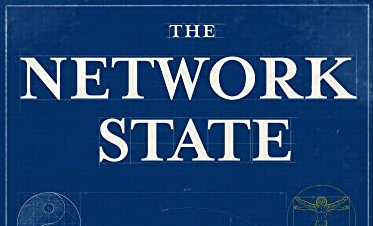The Network State

Balaji S. Srinivasan (@balajis) is an angel investor, tech founder, and author of The Network State. Formerly the CTO of Coinbase and General Partner at Andreessen Horowitz, he is an early investor in many successful tech companies and crypto protocols, including Alchemy, Ava Labs, Bitcoin, Cameo, Chainlink, Clubhouse, Dapper Labs, Deel, EPNS, Ethereum, Instadapp, Lambda School, Mighty, NEAR Protocol, OnDeck, Opensea, Replit, Republic, Roam Research, Solana, Soylent, Superhuman, Synthesis, XMTP, and Zora.
Dr. Srinivasan was the cofounder of Earn.com (acquired by Coinbase), Counsyl (acquired by Myriad), Teleport (acquired by Topia), and Coin Center. He holds a BS/MS/PhD in Electrical Engineering and an MS in Chemical Engineering from Stanford University. The brother is smart.
He just released The Network State, a book that actively envisions and lays out a roadmap for building the successor to the nation state, a vision he has called The Network State. He has made the entire book available online and can be read here. For the skimmers among us, he also included a one sentence version, a one image version, a 1000 word version, and a single essay version at the very beginning of the text. As a way to make an introduction to everyone, we have chosen to share the 1000 word version below. Balaji is pushing the vision for what is becoming possible here, at the dawn of Web3.
We are considering a book club to read through it together in our Discord. Join us there and chime to let us know you are interested. (You can also email us at WordOnTheStreets813@gmail.com)
Here's Balaji:
Technology has allowed us to start new companies, new communities, and new currencies. But can we use it to create new cities, or even new countries? A key concept is to go cloud first, land last — but not land never — by starting with an online community and then materializing it into the physical world. We get there in seven steps:
- Found a startup society. This is simply an online community with aspirations of something greater. Anyone can found one, just like anyone can found a company or cryptocurrency.2 And the founder’s legitimacy comes from whether people opt to follow them.
- Organize it into a group capable of collective action. Given a sufficiently dedicated online community, the next step is to organize it into a network union. Unlike a social network, a network union has a purpose: it coordinates its members for their mutual benefit. And unlike a traditional union, a network union is not set up solely in opposition to a particular corporation, so it can take a variety of different collective actions.3 Unionization is a key step because it turns an otherwise ineffective online community into a group of people working together for a common cause.
- Build trust offline and a cryptoeconomy online. Begin holding in-person meetups in the physical world, of increasing scale and duration, while simultaneously building an internal economy using cryptocurrency.
- Crowdfund physical nodes. Once sufficient trust has been built and funds have been accumulated, start crowdfunding apartments, houses, and even towns to bring digital citizens into the physical world within real co-living communities.
- Digitally connect physical communities. Link these physical nodes together into a network archipelago, a set of digitally connected physical territories distributed around the world. Nodes of the network archipelago range from one-person apartments to in-person communities of arbitrary size. Physical access is granted by holding a web3 cryptopassport, and mixed reality is used to seamlessly link the online and offline worlds.
- Conduct an on-chain census. As the society scales, run a cryptographically auditable census to demonstrate the growing size of your population, income, and real-estate footprint. This is how a startup society proves traction in the face of skepticism.
- Gain diplomatic recognition. A startup society with sufficient scale should eventually be able to negotiate for diplomatic recognition from at least one pre-existing government, and from there gradually increased sovereignty, slowly becoming a true network state.
The key idea is to populate the land from the cloud, and do so all over the earth. Unlike an ideologically disaligned and geographically centralized legacy state, which packs millions of disputants in one place, a network state is ideologically aligned but geographically decentralized. The people are spread around the world in clusters of varying size, but their hearts are in one place.
As the population and economy of a startup society grow comparable to that of a legacy state, with millions of citizens and billions in income, it should eventually4 be able to attain recognition from existing sovereigns — and ultimately the United Nations — just as Bitcoin has now become a bona fide national currency.
